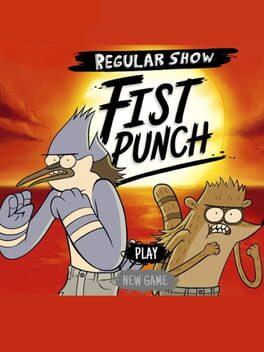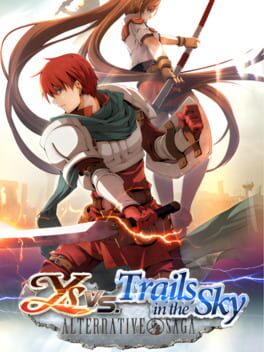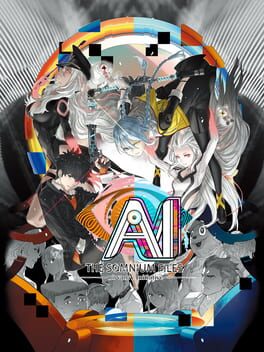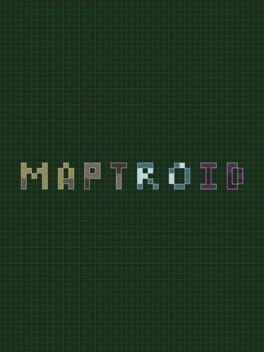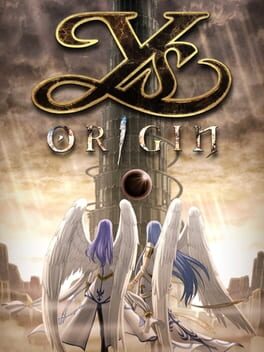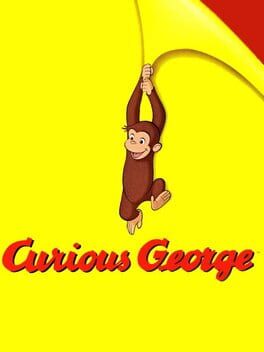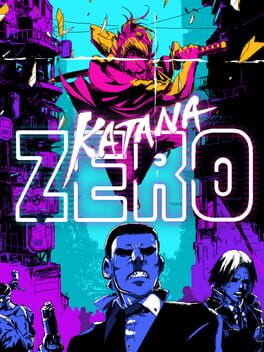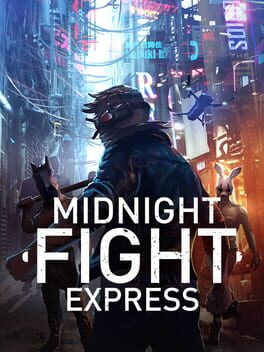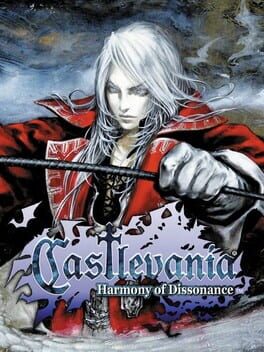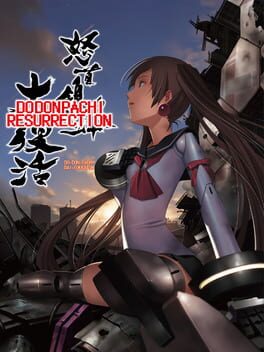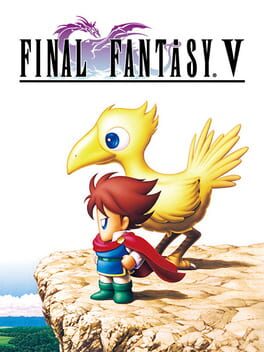LoreW001
186 Reviews liked by LoreW001
Step aside World's End Club, there's a new sheriff in town.
Let me preface this by saying that I'm not surprised that I ended up really enjoying my time with Nirvana Initiative; I already enjoyed the original AI: Somnium Files three years ago and the sequel was probably my most anticipated release of this year. Having said that, I don't think it's anywhere close to perfect and it does carry a lot of the same quirks as the original, for better or for worse, so if you didn't like the original due to the absurdity of it all or the constant dumb jokes between characters as well as the often horny humor, this is not going to convince you and you should take everything I'm saying here with a grain of salt. But nevertheless, Nirvana Initiative feels like a much more polished successor, and in similar fashion to when I was playing the original, I could not put this down as soon as I was a few hours deep.
Two things stand out to me in particular as very noticeable improvements. The first is the improved gameplay; a lot more thought has been put into the interactive aspects of the game. The easiest aspect to explain here is the quick time events (QTEs) that make up the action sequences, and it's improved in a pretty simple fashion thanks to more rigorous inputs that require the joysticks, the letter buttons, and the triggers, sometimes in quick succession to add a bit more complexity when compared to the original. Also, Date's not the main protagonist anymore, so the porno mag gag is almost entirely absent! Huzzah! It's not perfect, because there are times where you have to watch a few minutes of cutscenes before they'll throw some required inputs at you if you get too complacent, but I'll take what I can get.
Somniums are improved a ton as well, thanks to better thought-out scenarios building upon the original formula. It's of a similar structure to the original, where you have to interact with items within the Somnium to get past mental locks and occasionally use Timies to limit the amount of time spent, but now the writers have elaborated upon the scenarios utilizing the same base structure by varying objectives and strategies involved. For instance, one Somnium is a straight parody of Pokemon Go, and requires you to find PokeStop lookalikes to "catch" characters from the game to defeat evil assassins and overlords. Another Somnium acts like a quiz show, and you have to correctly answer questions while figuring out the gimmicks on the fly to stay ahead of the opponent's score. And finally, there's a Somnium that takes some inspiration from Ace Attorney, in that you can present "evidence" in the form of what you know and have found out to force objects and characters to reveal their true nature. It's a huge improvement mechanically over the previous game's Somniums, which felt less like puzzles and more like trial and error with hopefully picking the correct choices with the correct Timies on hand while walking around mysterious landscapes with few, if any, knowledge or execution tests to be found. The Somniums are further aided by the addition of the Keys system, which by providing helpful descriptions, can help lead you to the correct choice/interaction by using up time here and there on "throwaway" observation interactions to better understand both the nature of the person whose Somnium you're in as well as make a more informed decision on how to progress. There's definitely a lot more depth and a lot less hassle here, and even though one could argue that there's still a degree of trial and error due to the need to collect Timies and waste negative Timies on minute throwaway interactions (since they force you to commit to an interaction with the time multiplier), you can even bypass this aspect entirely with Story mode Somnium difficulty if you choose to do so, a setting that I very much appreciated.
Speaking of detective game influence, Nirvana Initiative leans into the detective aspect a lot more than the original, thanks to its third major improved aspect of interaction: the VR segments. Throughout the story, the AI Balls will recreate the scenes of the crimes committed in a VR environment, and it's up to the protagonist to examine every bit of data as preserved through the three scans (the standard environment mode, X-ray mode, and Thermo mode) to dig up every related clue not easily detected by the naked eye. The cherry on top here is that it's played straight and typical of what you'd expect from the series, in the form of an exaggerated "reenactment" demanded by the AI-Balls that let you put your knowledge to the test while rewarding that newfound knowledge with more silly shenanigans as a satirical interpretation for how the crime played out. Seriously though, Ryuki's shrilly caricature of the voice of the victim while constantly protesting the snarky comments of the director kills me every time.
While I understand that the humor of the series is not everyone's cup of tea, there's definitely a part of me that just likes dumb dad jokes or over the top and batshit crazy plots and effects, and Nirvana Initiative had me grinning and chuckling throughout its runtime. The banter between Mizuki and Aiba as Mizuki attempts to assert herself as someone to be taken seriously or Aiba going crazy every time a bug got spotted in a houseplant or a fish got spotted in a pond, really helped uplift my spirits, especially in a murder mystery thriller, a genre that can often get pretty dark due to all the death involved. It also provided an incentive to constantly click on all the interactable objects of notability whenever I was in a new environment, just so I could get more dumb sofa jokes or flavor text of the whiteboard at the yakuza office with a totally unrelated "principle" that changed every time I visited. I get that the quirky humor can easily be written off as overused running gags and that there are definitely plenty of thinly veiled dirty jokes that might spoil the whole package, but ultimately, I came to really appreciate these light moments in an otherwise pretty dismal time of these characters' lives. And I'll give the writers the benefit of the doubt here; they're able to hold back the jokes when the going gets very rough and they just want you to focus exactly on understanding the harrowing plot details or talking with characters when they've let their guard down as to not take attention away from their intimate moments. Nirvana Initiative often doesn't take itself very seriously, but it's a more mature and aware product that knows when it's time to move on as well.
And speaking of awareness, that's the other main aspect that really stood out to me while playing Nirvana Initiative; the game is acutely aware that you are an active participant in all of this, and is not afraid to make itself known that it is aware of this. I'm not just talking about the fourth wall breaks that Uchikoshi's works are known for of course, that's to be expected at this point. Rather, the game draws you in by actively involving you with the central mystery, and not just by piquing your curiosity with a bunch of batshit crazy conspiracy theories, happenings, occult leanings, and so on. The game presents itself as a flowchart of related, sequential events, and oftentimes you will need to learn necessary information to progress forward through previously misunderstood locks that you once had no idea on how to approach (something that I very much appreciated as an organic way to both hide linearity while creating additional linkages between all the scattered and strange events of the game). And it's very good at testing your ability to maintain focus while keeping an eye on the bigger picture at hand, in a way that I don't think the original quite captured.
To put it another way: video games distinguish themselves from many other forms of traditional media by serving as an interactive form, and beyond that, a contest. While playing a video game, you're actively competing with something, whether that be another human/computer player or the game itself; the game would lose much of its meaning without another entity to interact with the work, and it's this inherent push & pull present in video games that marks the potential for games as a meaningful art form. When this idea was first presented to me by TotalBiscuit many years ago, I originally took it at face value as execution tests and knowledge tests... but now I want to expand upon that a bit more with this example. Nirvana Initiative is aware that you, as the player, handle a very specific role outside of just controlling the protagonist characters and interacting with the mechanics to progress the plot. It is constantly making its mark known that you are both an active participant and an observer, traversing the game's structure and environments while struggling to make sense of the seemingly nonsensical things that are going on in the in-game universe. And as a result, Nirvana Initiative is constantly fucking with your sense of perspective and perception. It throws every trick in the book at you, from execution & knowledge tests to keep you honest, to unreliable narrators and seemingly dangling plot threads, to subverting controls and manipulating the game's presentation while introducing new concepts here and there into the fold, and so on so forth. More realized than the original is this idea that the game has a mind of its own and knows that you want to solve the inherent mystery after getting invested, and it wants you to too... but not without a meaningful endeavor so you grasp every detail that is left in the shadows.
As a related side note, I found myself so invested at this point, that after the central "plot twist" was revealed, I tried to metagame back and scour the past events of the game to see if there were any gaping plot holes present as a result of the main reveal. Yet, after playing further with additional in-universe explanations and spending a bit more time analyzing the gritty details, I couldn't actually find any major plotholes, or at least no loose ends that didn't have some degree of a reasonable explanation attached. To go into further detail beyond what I have just written would be spoiling a crucial part of the experience, but I do have some draft notes regarding some of the more notable things contributing to the game's continuity that I'd be more than happy to discuss with others if prompted to do so. Needless to say, the game's attention to detail (both inside the narrative and outside in the meta-narrative) really impressed me.
Like I said before, I'm not going to pretend Nirvana Initiative is without its shortcomings; there's some dry characters here and there that could have their backstories and personalities expanded a bit (the relationships between a couple of the characters are some of the more egregious examples), there are some mechanical issues such as excessive downtime during QTEs or the trial and error of Timies, and the dumb running gags + seemingly pubescent one-liners are definitely going to drive away a lot of potential players. And that's not even mentioning some of the excess flavor mechanics like the optional Tamogachi pet minigame included for a few quick laughs and eyeballs to buy concept art and costumes, or the occasional technical issues like bugged character models or sudden frame dips when switching between characters in dialogue. But having said that, I'm more than happy to overlook almost all of this, because it just happened to strike the right flavor of what I'm looking for in the medium while improving upon the original in leaps and bounds. And even despite its dark and twisted plot or various layers of irony and fourth wall breaking, and the many other little details or irregularities I could point out, there's a certain earnestness to it all.
Without speaking too greatly on potential spoilers, there's a speech by Mizuki near the end of the game where she comforts a drunk by telling him that there's no need to be afraid of weakness, for it forces us to support each other and put aside our differences.. As she put it, with the cheesiness and triumphant vigor of any classic locker room speech (a perfect fit for this game, as it stands), "Humanity is rooted in weakness... to deny that is like denying humanity as a whole!"
And I wouldn't have it any other way.
Let me preface this by saying that I'm not surprised that I ended up really enjoying my time with Nirvana Initiative; I already enjoyed the original AI: Somnium Files three years ago and the sequel was probably my most anticipated release of this year. Having said that, I don't think it's anywhere close to perfect and it does carry a lot of the same quirks as the original, for better or for worse, so if you didn't like the original due to the absurdity of it all or the constant dumb jokes between characters as well as the often horny humor, this is not going to convince you and you should take everything I'm saying here with a grain of salt. But nevertheless, Nirvana Initiative feels like a much more polished successor, and in similar fashion to when I was playing the original, I could not put this down as soon as I was a few hours deep.
Two things stand out to me in particular as very noticeable improvements. The first is the improved gameplay; a lot more thought has been put into the interactive aspects of the game. The easiest aspect to explain here is the quick time events (QTEs) that make up the action sequences, and it's improved in a pretty simple fashion thanks to more rigorous inputs that require the joysticks, the letter buttons, and the triggers, sometimes in quick succession to add a bit more complexity when compared to the original. Also, Date's not the main protagonist anymore, so the porno mag gag is almost entirely absent! Huzzah! It's not perfect, because there are times where you have to watch a few minutes of cutscenes before they'll throw some required inputs at you if you get too complacent, but I'll take what I can get.
Somniums are improved a ton as well, thanks to better thought-out scenarios building upon the original formula. It's of a similar structure to the original, where you have to interact with items within the Somnium to get past mental locks and occasionally use Timies to limit the amount of time spent, but now the writers have elaborated upon the scenarios utilizing the same base structure by varying objectives and strategies involved. For instance, one Somnium is a straight parody of Pokemon Go, and requires you to find PokeStop lookalikes to "catch" characters from the game to defeat evil assassins and overlords. Another Somnium acts like a quiz show, and you have to correctly answer questions while figuring out the gimmicks on the fly to stay ahead of the opponent's score. And finally, there's a Somnium that takes some inspiration from Ace Attorney, in that you can present "evidence" in the form of what you know and have found out to force objects and characters to reveal their true nature. It's a huge improvement mechanically over the previous game's Somniums, which felt less like puzzles and more like trial and error with hopefully picking the correct choices with the correct Timies on hand while walking around mysterious landscapes with few, if any, knowledge or execution tests to be found. The Somniums are further aided by the addition of the Keys system, which by providing helpful descriptions, can help lead you to the correct choice/interaction by using up time here and there on "throwaway" observation interactions to better understand both the nature of the person whose Somnium you're in as well as make a more informed decision on how to progress. There's definitely a lot more depth and a lot less hassle here, and even though one could argue that there's still a degree of trial and error due to the need to collect Timies and waste negative Timies on minute throwaway interactions (since they force you to commit to an interaction with the time multiplier), you can even bypass this aspect entirely with Story mode Somnium difficulty if you choose to do so, a setting that I very much appreciated.
Speaking of detective game influence, Nirvana Initiative leans into the detective aspect a lot more than the original, thanks to its third major improved aspect of interaction: the VR segments. Throughout the story, the AI Balls will recreate the scenes of the crimes committed in a VR environment, and it's up to the protagonist to examine every bit of data as preserved through the three scans (the standard environment mode, X-ray mode, and Thermo mode) to dig up every related clue not easily detected by the naked eye. The cherry on top here is that it's played straight and typical of what you'd expect from the series, in the form of an exaggerated "reenactment" demanded by the AI-Balls that let you put your knowledge to the test while rewarding that newfound knowledge with more silly shenanigans as a satirical interpretation for how the crime played out. Seriously though, Ryuki's shrilly caricature of the voice of the victim while constantly protesting the snarky comments of the director kills me every time.
While I understand that the humor of the series is not everyone's cup of tea, there's definitely a part of me that just likes dumb dad jokes or over the top and batshit crazy plots and effects, and Nirvana Initiative had me grinning and chuckling throughout its runtime. The banter between Mizuki and Aiba as Mizuki attempts to assert herself as someone to be taken seriously or Aiba going crazy every time a bug got spotted in a houseplant or a fish got spotted in a pond, really helped uplift my spirits, especially in a murder mystery thriller, a genre that can often get pretty dark due to all the death involved. It also provided an incentive to constantly click on all the interactable objects of notability whenever I was in a new environment, just so I could get more dumb sofa jokes or flavor text of the whiteboard at the yakuza office with a totally unrelated "principle" that changed every time I visited. I get that the quirky humor can easily be written off as overused running gags and that there are definitely plenty of thinly veiled dirty jokes that might spoil the whole package, but ultimately, I came to really appreciate these light moments in an otherwise pretty dismal time of these characters' lives. And I'll give the writers the benefit of the doubt here; they're able to hold back the jokes when the going gets very rough and they just want you to focus exactly on understanding the harrowing plot details or talking with characters when they've let their guard down as to not take attention away from their intimate moments. Nirvana Initiative often doesn't take itself very seriously, but it's a more mature and aware product that knows when it's time to move on as well.
And speaking of awareness, that's the other main aspect that really stood out to me while playing Nirvana Initiative; the game is acutely aware that you are an active participant in all of this, and is not afraid to make itself known that it is aware of this. I'm not just talking about the fourth wall breaks that Uchikoshi's works are known for of course, that's to be expected at this point. Rather, the game draws you in by actively involving you with the central mystery, and not just by piquing your curiosity with a bunch of batshit crazy conspiracy theories, happenings, occult leanings, and so on. The game presents itself as a flowchart of related, sequential events, and oftentimes you will need to learn necessary information to progress forward through previously misunderstood locks that you once had no idea on how to approach (something that I very much appreciated as an organic way to both hide linearity while creating additional linkages between all the scattered and strange events of the game). And it's very good at testing your ability to maintain focus while keeping an eye on the bigger picture at hand, in a way that I don't think the original quite captured.
To put it another way: video games distinguish themselves from many other forms of traditional media by serving as an interactive form, and beyond that, a contest. While playing a video game, you're actively competing with something, whether that be another human/computer player or the game itself; the game would lose much of its meaning without another entity to interact with the work, and it's this inherent push & pull present in video games that marks the potential for games as a meaningful art form. When this idea was first presented to me by TotalBiscuit many years ago, I originally took it at face value as execution tests and knowledge tests... but now I want to expand upon that a bit more with this example. Nirvana Initiative is aware that you, as the player, handle a very specific role outside of just controlling the protagonist characters and interacting with the mechanics to progress the plot. It is constantly making its mark known that you are both an active participant and an observer, traversing the game's structure and environments while struggling to make sense of the seemingly nonsensical things that are going on in the in-game universe. And as a result, Nirvana Initiative is constantly fucking with your sense of perspective and perception. It throws every trick in the book at you, from execution & knowledge tests to keep you honest, to unreliable narrators and seemingly dangling plot threads, to subverting controls and manipulating the game's presentation while introducing new concepts here and there into the fold, and so on so forth. More realized than the original is this idea that the game has a mind of its own and knows that you want to solve the inherent mystery after getting invested, and it wants you to too... but not without a meaningful endeavor so you grasp every detail that is left in the shadows.
As a related side note, I found myself so invested at this point, that after the central "plot twist" was revealed, I tried to metagame back and scour the past events of the game to see if there were any gaping plot holes present as a result of the main reveal. Yet, after playing further with additional in-universe explanations and spending a bit more time analyzing the gritty details, I couldn't actually find any major plotholes, or at least no loose ends that didn't have some degree of a reasonable explanation attached. To go into further detail beyond what I have just written would be spoiling a crucial part of the experience, but I do have some draft notes regarding some of the more notable things contributing to the game's continuity that I'd be more than happy to discuss with others if prompted to do so. Needless to say, the game's attention to detail (both inside the narrative and outside in the meta-narrative) really impressed me.
Like I said before, I'm not going to pretend Nirvana Initiative is without its shortcomings; there's some dry characters here and there that could have their backstories and personalities expanded a bit (the relationships between a couple of the characters are some of the more egregious examples), there are some mechanical issues such as excessive downtime during QTEs or the trial and error of Timies, and the dumb running gags + seemingly pubescent one-liners are definitely going to drive away a lot of potential players. And that's not even mentioning some of the excess flavor mechanics like the optional Tamogachi pet minigame included for a few quick laughs and eyeballs to buy concept art and costumes, or the occasional technical issues like bugged character models or sudden frame dips when switching between characters in dialogue. But having said that, I'm more than happy to overlook almost all of this, because it just happened to strike the right flavor of what I'm looking for in the medium while improving upon the original in leaps and bounds. And even despite its dark and twisted plot or various layers of irony and fourth wall breaking, and the many other little details or irregularities I could point out, there's a certain earnestness to it all.
Without speaking too greatly on potential spoilers, there's a speech by Mizuki near the end of the game where she comforts a drunk by telling him that there's no need to be afraid of weakness, for it forces us to support each other and put aside our differences.. As she put it, with the cheesiness and triumphant vigor of any classic locker room speech (a perfect fit for this game, as it stands), "Humanity is rooted in weakness... to deny that is like denying humanity as a whole!"
And I wouldn't have it any other way.
Maptroid
2020
Maptroid is a simple game following a pretty unique concept: What if you turned a Metroidvania's map into the game itself. Thus instead of traversing an open world, this game has you move as an icon on a large map screen. This in turn makes Maptroid a pretty funny game.
It's a pretty minimalistic execution, the map is connected squares that are only colored differently based on items being required to enter them. The "regions" kind of feel thrown randomly around the map and are never actually fully connected like you might see in a real metroidvania, so it does fail to feel like a coherent world. There are actually power ups you can find in the map, such as a grappling hook that allows you to move upwards, or a shovel that lets you dig downwards; these items really help the game to actually feel like you obtained movement upgrades like you would in other metroidvanias. There's also a storyline as well somewhat, which you can read by finding scraps of paper around the world, but unfortunately the font was not really readable for me for unknown reasons. Finally, I'd also like to give a bonus thumbs up for the game including an image of a "real screen" in the top right where a map normally would be, thus playing the main joke in reverse.
Overall, I think it's a pretty funny experience worth checking it. At most it would take you like fifteen minutes so there's really nothing to lose in exploring this silly concept.
It's a pretty minimalistic execution, the map is connected squares that are only colored differently based on items being required to enter them. The "regions" kind of feel thrown randomly around the map and are never actually fully connected like you might see in a real metroidvania, so it does fail to feel like a coherent world. There are actually power ups you can find in the map, such as a grappling hook that allows you to move upwards, or a shovel that lets you dig downwards; these items really help the game to actually feel like you obtained movement upgrades like you would in other metroidvanias. There's also a storyline as well somewhat, which you can read by finding scraps of paper around the world, but unfortunately the font was not really readable for me for unknown reasons. Finally, I'd also like to give a bonus thumbs up for the game including an image of a "real screen" in the top right where a map normally would be, thus playing the main joke in reverse.
Overall, I think it's a pretty funny experience worth checking it. At most it would take you like fifteen minutes so there's really nothing to lose in exploring this silly concept.
This review contains spoilers
I've had a couple of friends who played through 13 Sentinels and have had nothing but praise for the title, but I didn't get the chance to try it out myself for a little while, since I never owned a PS4. Finally, I took the chance and got myself a PS5, and this was one of the big reasons; it seemed like a great opportunity to catch up on some titles I never got the chance to experience. So, I decided to finally dip my toes into the game this Monday, thinking I'm just going to play this on and off on the side as a visual novel to keep me company on rainy days.
Well, that definitely didn't happen. I ended up binging the game through the entirety of Tuesday and Wednesday, staying up til 3 AM both days just to see this thriller to its end. I don't think I've felt this enthralled about such a complex, weaving narrative since my time with Virtue's Last Reward.
As the title might imply, you've got 13 protagonists to run through; 13 teenagers that somehow got caught up in this extraordinary war between mankind and kaiju. And every narrative tries to do something at least slightly different; one's a Groundhog day time loop, another one has you play as a troubled girl on the verge of a mental collapse, still another one discusses the romp of a young man wandering around an unfamiliar campus scrounging up change for yakisoba pan, and then you've also got another story where an amnesiac wakes up right beside the body of a dead woman wondering if he pulled the trigger. Each story plays out in its own unique way and you as the player often need to piece together the puzzle to progress, in a way that's thought provoking but not abstruse like early adventure games. And that's just 4 out of the 13 different threads that this game spins in its complex yarn of a tale; think of it as 13 different non linear tunnels intersecting one another at different junctions across a sprawling underground, eventually culminating at a center hollow. You don't have to experience each one individually at a time and in fact you can't do that, because this story hinges upon the interactions of these character's backstories and struggles and understanding one character's backstory is crucial to understanding not just other character backstories, but the overall picture as it is painted on the canvas. Somehow, Vanillaware ran us through 13 different stories with different structures, and somehow, all 13 stories are executed with so much care and with fairly distinct and personable protagonists. It's like if 428: Shibuya Scramble were a sci-fi flick alongside its central thriller narrative.
Oh, and there are a lot of twists and turns that will keep you on your toes. They're executed and explained so damn well despite all the jargon that inevitably comes with a sci-fi setting, and I honestly couldn't think of any major plotholes that come to mind. It's genuinely some of the best writing that I've seen in a video game yet manages to pull this off in a way that only a video game can execute. In other words, it makes some of the other games advertised with "strong writing" look like fanfiction.net; I really haven't been this impressed by video game narratives in a long time.
There's a real time tactical RPG side to 13 Sentinels too, with tons of customizable options and varied enemies. It's pretty easy to cheese at normal difficulty (sentry guns go brrrrr) but it's definitely entertaining enough to hold your attention as the tying down point of the whole game, with some good banter between your sentinel pilots to remind you that the characters are very much alive and well. Not ground breaking by any means but it gets the job done.
Regardless, 13 Sentinels was absolute crack in video game form and I have not been this enraptured by the medium ever since playing Shadow of the Colossus last Christmas Eve. I've been meaning to explore some of the classics of the late 1990s and 2000s to improve my overall literacy of the old gaming staples, but it's always good to know that gaming remains in good hands in the modern era with titles like 13 Sentinels, a genuine breath of fresh air despite being a love letter to so many video game and narrative tropes I know and love. I eagerly await Vanillaware's next work if this is the level of quality I can expect in the future, and I'll make another mental jot to get to Odin Sphere this year after having my mind constantly blown by this modern masterpiece.
Well, that definitely didn't happen. I ended up binging the game through the entirety of Tuesday and Wednesday, staying up til 3 AM both days just to see this thriller to its end. I don't think I've felt this enthralled about such a complex, weaving narrative since my time with Virtue's Last Reward.
As the title might imply, you've got 13 protagonists to run through; 13 teenagers that somehow got caught up in this extraordinary war between mankind and kaiju. And every narrative tries to do something at least slightly different; one's a Groundhog day time loop, another one has you play as a troubled girl on the verge of a mental collapse, still another one discusses the romp of a young man wandering around an unfamiliar campus scrounging up change for yakisoba pan, and then you've also got another story where an amnesiac wakes up right beside the body of a dead woman wondering if he pulled the trigger. Each story plays out in its own unique way and you as the player often need to piece together the puzzle to progress, in a way that's thought provoking but not abstruse like early adventure games. And that's just 4 out of the 13 different threads that this game spins in its complex yarn of a tale; think of it as 13 different non linear tunnels intersecting one another at different junctions across a sprawling underground, eventually culminating at a center hollow. You don't have to experience each one individually at a time and in fact you can't do that, because this story hinges upon the interactions of these character's backstories and struggles and understanding one character's backstory is crucial to understanding not just other character backstories, but the overall picture as it is painted on the canvas. Somehow, Vanillaware ran us through 13 different stories with different structures, and somehow, all 13 stories are executed with so much care and with fairly distinct and personable protagonists. It's like if 428: Shibuya Scramble were a sci-fi flick alongside its central thriller narrative.
Oh, and there are a lot of twists and turns that will keep you on your toes. They're executed and explained so damn well despite all the jargon that inevitably comes with a sci-fi setting, and I honestly couldn't think of any major plotholes that come to mind. It's genuinely some of the best writing that I've seen in a video game yet manages to pull this off in a way that only a video game can execute. In other words, it makes some of the other games advertised with "strong writing" look like fanfiction.net; I really haven't been this impressed by video game narratives in a long time.
There's a real time tactical RPG side to 13 Sentinels too, with tons of customizable options and varied enemies. It's pretty easy to cheese at normal difficulty (sentry guns go brrrrr) but it's definitely entertaining enough to hold your attention as the tying down point of the whole game, with some good banter between your sentinel pilots to remind you that the characters are very much alive and well. Not ground breaking by any means but it gets the job done.
Regardless, 13 Sentinels was absolute crack in video game form and I have not been this enraptured by the medium ever since playing Shadow of the Colossus last Christmas Eve. I've been meaning to explore some of the classics of the late 1990s and 2000s to improve my overall literacy of the old gaming staples, but it's always good to know that gaming remains in good hands in the modern era with titles like 13 Sentinels, a genuine breath of fresh air despite being a love letter to so many video game and narrative tropes I know and love. I eagerly await Vanillaware's next work if this is the level of quality I can expect in the future, and I'll make another mental jot to get to Odin Sphere this year after having my mind constantly blown by this modern masterpiece.
Ys Origin
2006
L2AGO #5
The more I play Ys Origin, the more convinced I become of its greatness.
Ys Origin takes place 700 years before the events of Ys I, and deals with events of desperation and devastation; the land of Ys has been flooded with torrents of disasters, and the Goddesses have gone missing overnight, leaving Solomon Shrine in danger and its denizens fearful. A search party has descended down to the land to try and make sense of the chaos, and in its wake stumble upon Darm Tower, where demons have suspiciously gathered. If you've played Ys I & II, many of the same bosses return here in Darm Tower from Ys I, only with Darm Tower serving as the whole ecosystem. The Tower itself has been greatly expanded and varied, with a plethora of different environments and enemies to keep you on your toes. And yet it's extremely thoughtful and condensed dungeon crawling; the levels are laid out neatly with virtually no labyrinths (I guess you could argue the Hall of Mirrors is one, though it's fairly short) and I never found myself getting lost due to the fairly straightforward layouts and helpful NPCs located at key points to give you hints if needbe. It also helps that you're encouraged to partake in this aggressive fast paced combat through an EXP multiplier that stays active as long as you keep throwing out successful hitboxes against enemies in levels; time flew by so quickly when traversing Darm Tower, and I enjoyed every moment of it.
Where I think Ys Origin really succeeds is allowing for extremely varied gameplay while keeping combat fast and engaging regardless of variation. You've got two starter protagonists and one unlockable "secret" protagonist, and they all play differently. Yunica's your midrange fighter; she's relatively fast and fights with an axe, but later on gains more options to expand her range such as a fast special spin attack and a fire bolt projectile, and thus balancing when to fight upfront vs fight from a distance is necessary to mastering her playstyle. Hugo's the slowest character but works by overwhelming his opponents with projectiles; his specials range from a quick shield to mines, and the key to mastering him is focusing on positioning to make sure he's always in the right place to dish out damage without becoming too susceptible to attacks. Finally, the secret character has some of the fastest and most spammable melee attacks in the game, but as a result he doesn't have much room for safety spacing; as a result, you'll need to know exactly when to go aggro on enemies and when/how to back off to dodge incoming attacks on the fly. Having completed runs with all three characters at this point, I'm happy to report that it didn't feel like there was an obvious "best" character and an obvious "worst" character; they all have their merits, and I would gladly recommend trying all of them out. You'll end up fighting some similar and some different bosses throughout each run, so it's not like the whole experience is just another character thrown into the same design after all.
Speaking of which, the bosses. One of my biggest complaints with Ys: The Oath in Felghana was that 80% of the bosses felt like an endurance test; you spend the vast majority of fights just dodging enemy attacks left and right until the boss decides that they're okay with letting you attack them, with the boss out of range or in an invulnerable state until then. Playing through Ys Origin is fortunately a much different experience. Almost every boss can be actively engaged with at all times; there's almost always an opportunity to deal damage or pressure to a boss to progress fights, and generally they will attempt to dissuade you from wailing on them by sending out hitboxes and dishing damage to overly aggressive players rather than entering invulnerability or leaving the arena. Even the two bosses that don't play by this rule (the centipede and the lava punchy boss) are constantly throwing themselves out there for you to strike back, giving you a stronger sense of player agency over the fight and allowing for significantly less "downtime" than many of the boss fights in Oath in Felghana. Understanding the push & pull of boss fights in Ys Origin is key to mastering the game; there's no dodge roll or shield to save you here, so you'll have to think fast on your feet and jump/dodge attacks manually while juggling in the necessary offense as your win condition.
Let's talk briefly about the story too. Ys Origin's narrative is very simply told; there's only about 10 minutes max of exposition and dialogue to set up the story near the beginning, and then you're more or less let loose to start your ascent up the tower. Throughout your run, you'll learn more about the state of affairs around you as well as the protagonist's backstory, and all three of the protagonists stand out in this regard. Yunica's dealing with the loss of her close parental figures and struggles to get through the shadow of her past. Hugo's constantly comparing himself to those around him, and wonders what more it's going to take for him to finally achieve recognition and self-actualization. And the secret character? Let's just say that he's dealing with his wavering beliefs, and he's stuck in the middle wondering what to do with those who remain. While combat remains the focus of Ys Origin, its tale told via three different timelines (of three different protagonists) definitely plays a huge part of the experience; it won't take up too much of your time, but the worldbuilding and characterization that Falcom's staked a reputation off of remains fairly solid here.
And finally, I've basically stated this with different words for every Falcom game review I've done, but the soundtrack is phenomenal. Ys Origin in particular has some of the best tunes that I think Falcom Sound Team jdk has ever produced. Just give them a listen and you'll see what I mean.
At the end of the day, Ys Origin is just a goddamn fun game to play. The combat feels so great to engage with, the controls are extremely responsive, there's tons of variety via different protagonists and different attacks, boss fights are super flashy and enthralling, the soundtrack is fire, and there's a solid story packaged with this phenomenal gameplay that doesn't feel intrusive whatsoever. If I really had to nitpick, there are some enemies near the end that can reverse your controls temporarily with confusion (that fortunately can be somewhat alleviated through buying upgrades in the statue) and you can grind to make some boss fights more trivial by dealing more damage while taking less, though it's not always necessary as long as you're constantly engaging with overworld enemies. And once you beat the game with all three protagonists, you'll also unlock an arena where you can just hack away at enemies all day to your pleasure to unlock more rewards in a bonus shop, or partake in the classic boss rush. This is one of the easiest recommendations I can give for tightly constructed action-adventure games, and in my opinion, Ys Origin should not just be known as one of the best hidden gems of the 2000s, but as one of the greatest games of all time. I keep meaning to put this down, but it just keeps getting better. For a game set at the apocalyptic beginning, Ys Origin just refuses to age.
The more I play Ys Origin, the more convinced I become of its greatness.
Ys Origin takes place 700 years before the events of Ys I, and deals with events of desperation and devastation; the land of Ys has been flooded with torrents of disasters, and the Goddesses have gone missing overnight, leaving Solomon Shrine in danger and its denizens fearful. A search party has descended down to the land to try and make sense of the chaos, and in its wake stumble upon Darm Tower, where demons have suspiciously gathered. If you've played Ys I & II, many of the same bosses return here in Darm Tower from Ys I, only with Darm Tower serving as the whole ecosystem. The Tower itself has been greatly expanded and varied, with a plethora of different environments and enemies to keep you on your toes. And yet it's extremely thoughtful and condensed dungeon crawling; the levels are laid out neatly with virtually no labyrinths (I guess you could argue the Hall of Mirrors is one, though it's fairly short) and I never found myself getting lost due to the fairly straightforward layouts and helpful NPCs located at key points to give you hints if needbe. It also helps that you're encouraged to partake in this aggressive fast paced combat through an EXP multiplier that stays active as long as you keep throwing out successful hitboxes against enemies in levels; time flew by so quickly when traversing Darm Tower, and I enjoyed every moment of it.
Where I think Ys Origin really succeeds is allowing for extremely varied gameplay while keeping combat fast and engaging regardless of variation. You've got two starter protagonists and one unlockable "secret" protagonist, and they all play differently. Yunica's your midrange fighter; she's relatively fast and fights with an axe, but later on gains more options to expand her range such as a fast special spin attack and a fire bolt projectile, and thus balancing when to fight upfront vs fight from a distance is necessary to mastering her playstyle. Hugo's the slowest character but works by overwhelming his opponents with projectiles; his specials range from a quick shield to mines, and the key to mastering him is focusing on positioning to make sure he's always in the right place to dish out damage without becoming too susceptible to attacks. Finally, the secret character has some of the fastest and most spammable melee attacks in the game, but as a result he doesn't have much room for safety spacing; as a result, you'll need to know exactly when to go aggro on enemies and when/how to back off to dodge incoming attacks on the fly. Having completed runs with all three characters at this point, I'm happy to report that it didn't feel like there was an obvious "best" character and an obvious "worst" character; they all have their merits, and I would gladly recommend trying all of them out. You'll end up fighting some similar and some different bosses throughout each run, so it's not like the whole experience is just another character thrown into the same design after all.
Speaking of which, the bosses. One of my biggest complaints with Ys: The Oath in Felghana was that 80% of the bosses felt like an endurance test; you spend the vast majority of fights just dodging enemy attacks left and right until the boss decides that they're okay with letting you attack them, with the boss out of range or in an invulnerable state until then. Playing through Ys Origin is fortunately a much different experience. Almost every boss can be actively engaged with at all times; there's almost always an opportunity to deal damage or pressure to a boss to progress fights, and generally they will attempt to dissuade you from wailing on them by sending out hitboxes and dishing damage to overly aggressive players rather than entering invulnerability or leaving the arena. Even the two bosses that don't play by this rule (the centipede and the lava punchy boss) are constantly throwing themselves out there for you to strike back, giving you a stronger sense of player agency over the fight and allowing for significantly less "downtime" than many of the boss fights in Oath in Felghana. Understanding the push & pull of boss fights in Ys Origin is key to mastering the game; there's no dodge roll or shield to save you here, so you'll have to think fast on your feet and jump/dodge attacks manually while juggling in the necessary offense as your win condition.
Let's talk briefly about the story too. Ys Origin's narrative is very simply told; there's only about 10 minutes max of exposition and dialogue to set up the story near the beginning, and then you're more or less let loose to start your ascent up the tower. Throughout your run, you'll learn more about the state of affairs around you as well as the protagonist's backstory, and all three of the protagonists stand out in this regard. Yunica's dealing with the loss of her close parental figures and struggles to get through the shadow of her past. Hugo's constantly comparing himself to those around him, and wonders what more it's going to take for him to finally achieve recognition and self-actualization. And the secret character? Let's just say that he's dealing with his wavering beliefs, and he's stuck in the middle wondering what to do with those who remain. While combat remains the focus of Ys Origin, its tale told via three different timelines (of three different protagonists) definitely plays a huge part of the experience; it won't take up too much of your time, but the worldbuilding and characterization that Falcom's staked a reputation off of remains fairly solid here.
And finally, I've basically stated this with different words for every Falcom game review I've done, but the soundtrack is phenomenal. Ys Origin in particular has some of the best tunes that I think Falcom Sound Team jdk has ever produced. Just give them a listen and you'll see what I mean.
At the end of the day, Ys Origin is just a goddamn fun game to play. The combat feels so great to engage with, the controls are extremely responsive, there's tons of variety via different protagonists and different attacks, boss fights are super flashy and enthralling, the soundtrack is fire, and there's a solid story packaged with this phenomenal gameplay that doesn't feel intrusive whatsoever. If I really had to nitpick, there are some enemies near the end that can reverse your controls temporarily with confusion (that fortunately can be somewhat alleviated through buying upgrades in the statue) and you can grind to make some boss fights more trivial by dealing more damage while taking less, though it's not always necessary as long as you're constantly engaging with overworld enemies. And once you beat the game with all three protagonists, you'll also unlock an arena where you can just hack away at enemies all day to your pleasure to unlock more rewards in a bonus shop, or partake in the classic boss rush. This is one of the easiest recommendations I can give for tightly constructed action-adventure games, and in my opinion, Ys Origin should not just be known as one of the best hidden gems of the 2000s, but as one of the greatest games of all time. I keep meaning to put this down, but it just keeps getting better. For a game set at the apocalyptic beginning, Ys Origin just refuses to age.
Curious George
2006
this little shitfaced monkey has the audacity to, first off, be so curious it became his identity. which i just find ridiculous. curious about what? he's not smart enough to understand anything anyways. but secondly this little ape has the worst double jump in all of gaming. you gotta press the jump button twice before it registers, you can't double jump at a point during the first jump you gotta commit immediately. I'm sorry everyone but curious george on ps2 isnt that good. i know that's hard to take in and im sorry
Curious George
2006
Katana Zero
2019
you may see this star rating and think im fucking insane, but hear me out. as always, large stream of thoughts style review.
i fucking loved this game. im pretty sure that right now this is the only review on this website for this game thats higher than 4 stars or so, and i completely get why. the game has a certain look to it that isn't to everyone's taste and theres a small chunk of the game, around halfway through, where you have absolutely 0 idea what you're even supposed to do, and to top it all off the second castle doesn't really compare to the symphony of the night reverse castle
but i really don't mind!
i'll admit i got a bit frustrated at feeling lost halfway through, but i felt that same frustration in symphony of the night and aria of sorrow. both games had a segment that lasted about an hour maybe where i needed to check maps to figure out where im supposed to go. but even with that, i enjoy the way castlevanias play even at their simplest so it really doesn't get to me, especially with how damn short these games are. i got 200% and got all of the furniture and this game was still the shortest of the 3 i've played, clocking in at 6 hours. however i do need to mention that the progression definitely isn't the best but it isn't that terrible either? once you know where you're supposed to go you get into a flow where you're getting everything you need and unlocking more and more of the castle. the keys being a thing are stupid as hell though.
i also love to death how juste looks and how he controls. something about him just feels so smooth and great to play as in a way that i didnt get with soma and alucard even if theyre both great to play as. juste also feels like he has a lot more going on even if it still isn't a ton, maxim and lydie do a lot more for him than the few moments alucard has with his mom and dracula in symphony even if i'd say the quality of those interactions are higher. it also helps that the writing isn't super cheesy like in aria of sorrow. theres still some cheese, but it didnt irritate me like aria.
in terms of the music, you never hear people stop bitching about this games music and i do not understand why at all. 8 bit osts are easily the best castlevania has to offer music wise aside from a few good bits in every games, and this is no different. i found myself enjoying the music in this game way more than other castlevanias.
to wrap up my thoughts, i don't think this is the best castlevania game i've played. any day i'd tell you to play aria of sorrow or symphony of the night over this one. but it's my personal favorite that i've played and i think it gets way too much hate for what it is. if you played symphony of the night and aria of sorrow and wanted more iga goodness to play, play harmony of dissonance. go into it with an open mind and you might like it.
tl;dr, harmony of dissonance goes hard when you don't have a bitch in your ear telling you it doesn't
i fucking loved this game. im pretty sure that right now this is the only review on this website for this game thats higher than 4 stars or so, and i completely get why. the game has a certain look to it that isn't to everyone's taste and theres a small chunk of the game, around halfway through, where you have absolutely 0 idea what you're even supposed to do, and to top it all off the second castle doesn't really compare to the symphony of the night reverse castle
but i really don't mind!
i'll admit i got a bit frustrated at feeling lost halfway through, but i felt that same frustration in symphony of the night and aria of sorrow. both games had a segment that lasted about an hour maybe where i needed to check maps to figure out where im supposed to go. but even with that, i enjoy the way castlevanias play even at their simplest so it really doesn't get to me, especially with how damn short these games are. i got 200% and got all of the furniture and this game was still the shortest of the 3 i've played, clocking in at 6 hours. however i do need to mention that the progression definitely isn't the best but it isn't that terrible either? once you know where you're supposed to go you get into a flow where you're getting everything you need and unlocking more and more of the castle. the keys being a thing are stupid as hell though.
i also love to death how juste looks and how he controls. something about him just feels so smooth and great to play as in a way that i didnt get with soma and alucard even if theyre both great to play as. juste also feels like he has a lot more going on even if it still isn't a ton, maxim and lydie do a lot more for him than the few moments alucard has with his mom and dracula in symphony even if i'd say the quality of those interactions are higher. it also helps that the writing isn't super cheesy like in aria of sorrow. theres still some cheese, but it didnt irritate me like aria.
in terms of the music, you never hear people stop bitching about this games music and i do not understand why at all. 8 bit osts are easily the best castlevania has to offer music wise aside from a few good bits in every games, and this is no different. i found myself enjoying the music in this game way more than other castlevanias.
to wrap up my thoughts, i don't think this is the best castlevania game i've played. any day i'd tell you to play aria of sorrow or symphony of the night over this one. but it's my personal favorite that i've played and i think it gets way too much hate for what it is. if you played symphony of the night and aria of sorrow and wanted more iga goodness to play, play harmony of dissonance. go into it with an open mind and you might like it.
tl;dr, harmony of dissonance goes hard when you don't have a bitch in your ear telling you it doesn't
Final Fantasy V
1992
This is it baby this is THE Final Fantasy! The good shit!!! Have I ever played this game like a normal person? Absolutely not! I'm sure on my ninth fiesta run though!
Even though limiting yourself to four random jobs cannot possibly have been on the minds of anyone developing the game, the fact that it works so well and makes for such a rad experience really shows the games' various strengths, which are all in the nitty-gritty of the boss and job design. Certainly not the story, which is great for what it is, has a lot of funny moments and works as a nice romp, but isn't particularly ambitious. Try to find a theme in the story: you can't. It kind of gestures at some environmentalism here and there but it doesn't actually care so there's nothing at all.
First: the jobs. Most of them have a pretty big variety of tools or some unique utility. Nobody is completely dead weight, even Geomancer. The overlap between different jobs is a big part of how the game remains playable with any team composition, I think. They also are not even close to balanced, which rules. Generally, you need a lot of experimentation or outside info to know, say, when you can just use an instant death attack to kill a boss instantly, or how mixes work with the chemist, but the decision to not worry much about flattening everything in terms of power level, or going the other way and just having a progression of jobs like in FF3, makes the random style of playthrough work. And this is not even getting into the synergies! A lot of the game can be decided by figuring out which combination of abilities will get you something truly cool and busted, and finding that stuff feels great! This is another place where the fiesta rules, because playing normally you would just not use a Berserker. If you have to, though, you can figure out that giving them Equip Bows makes them way faster and stronger.
Second: the boss/enemy design. I think this is really the key point. They're so good. There are so many different gimmicks, and only a few fights that are just straight-up brawls. Almost every single major encounter in the game has at least one dirty trick available to trivilize or mitigate it. It's often as simple as just letting status effects work on bosses. There are plenty of RPGs where you also have lots of tools but they suck because they only work in places you'd never care to use them. In FF5, even playing as intended, you can come up with creative solutions to problems, and you will because levelling is only marginally relevant to your overall power. It smooths some edges but won't fundamentally overhaul your approach.
Yall I recommend FFV. Use a guide and do some random job bullshit or play it normally. Either is neat.
Even though limiting yourself to four random jobs cannot possibly have been on the minds of anyone developing the game, the fact that it works so well and makes for such a rad experience really shows the games' various strengths, which are all in the nitty-gritty of the boss and job design. Certainly not the story, which is great for what it is, has a lot of funny moments and works as a nice romp, but isn't particularly ambitious. Try to find a theme in the story: you can't. It kind of gestures at some environmentalism here and there but it doesn't actually care so there's nothing at all.
First: the jobs. Most of them have a pretty big variety of tools or some unique utility. Nobody is completely dead weight, even Geomancer. The overlap between different jobs is a big part of how the game remains playable with any team composition, I think. They also are not even close to balanced, which rules. Generally, you need a lot of experimentation or outside info to know, say, when you can just use an instant death attack to kill a boss instantly, or how mixes work with the chemist, but the decision to not worry much about flattening everything in terms of power level, or going the other way and just having a progression of jobs like in FF3, makes the random style of playthrough work. And this is not even getting into the synergies! A lot of the game can be decided by figuring out which combination of abilities will get you something truly cool and busted, and finding that stuff feels great! This is another place where the fiesta rules, because playing normally you would just not use a Berserker. If you have to, though, you can figure out that giving them Equip Bows makes them way faster and stronger.
Second: the boss/enemy design. I think this is really the key point. They're so good. There are so many different gimmicks, and only a few fights that are just straight-up brawls. Almost every single major encounter in the game has at least one dirty trick available to trivilize or mitigate it. It's often as simple as just letting status effects work on bosses. There are plenty of RPGs where you also have lots of tools but they suck because they only work in places you'd never care to use them. In FF5, even playing as intended, you can come up with creative solutions to problems, and you will because levelling is only marginally relevant to your overall power. It smooths some edges but won't fundamentally overhaul your approach.
Yall I recommend FFV. Use a guide and do some random job bullshit or play it normally. Either is neat.
Go to Hell
1985
Gruesome imagery flash and clutter the pitch black void, walls rip and tear through the flesh of your being, swift matters of evil sweep across the screens to take a piece of you. Antagonizing through and through, this frustrating self-expression feels riveting to look at and awful to play, as even the weird control layout comes straight outta hell.
[Play it](http://www.playnvg.tk/#!gohell) (EPILEPSY WARNING) if you want to experience this british hellscape from the 80s.
[Play it](http://www.playnvg.tk/#!gohell) (EPILEPSY WARNING) if you want to experience this british hellscape from the 80s.
